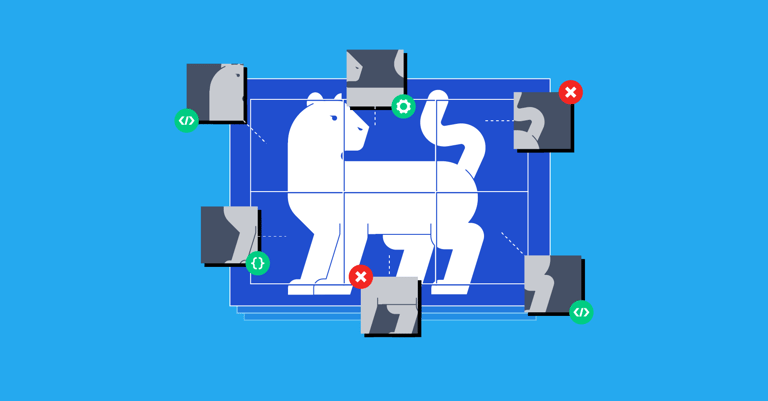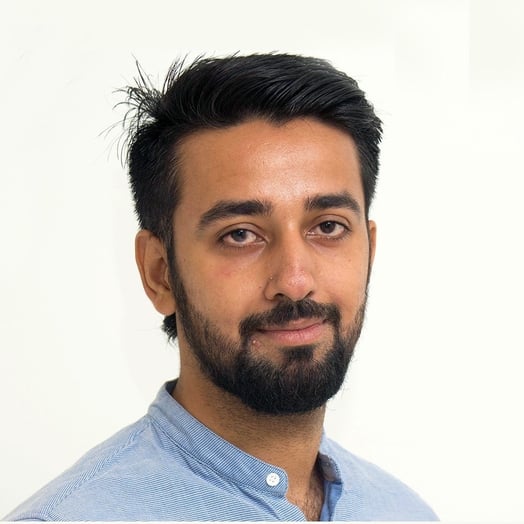

Urwa Muaz
Verified Expert in Engineering
Computer Vision Developer
Urwa is a Fulbright Scholar and Data Science graduate from New York University. He loves to leverage machine learning to solve practical problems and enjoys challenging, research-oriented positions. He has taken part in several machine learning projects, with deep learning-based Computer Vision being his primary expertise.
Portfolio
Experience
Availability
Preferred Environment
GitHub, PyTorch, Jupyter, Linux
The most amazing...
...project I've designed and implemented was a novel loss function to reduce gender bias in a neural language model, achieving state-of-the-art results.
Work Experience
Machine Learning Consultant
Urban Complexity Lab, New York University
- Created low dimensional representation from high dimensional transport data using autoencoders.
- Worked on a non-linear traffic prediction model for the outflow of traffic from JFK.
- Worked on anomaly detection pipelines based on Gaussian mixture models.
Senior Machine Learning Engineer
Hazen
- Worked on vehicle detection and tracked research and development for an automatic traffic violation detection system based on road facing cameras.
- Re-implemented a state-of-the-art solution for vehicle tracking by detection proposed in the paper "Extending IOU Based Multi-Object Tracking by Visual Information."
Computer Vision Intern
Applied Research in Government Operations (ARGO)
- Wrote scripts to collect image datasets from open source web resources like OpenStreetMap (OSM) and Google street view.
- Utilized Microsoft custom vision API for data annotation and model training.
- Developed a model used to build a report to analyze the comparative distribution of taxis on roads across Manhattan.
Computer Vision Engineer
Confiz
- Led a team to develop a Computer Vision product that uses the security infrastructure (cameras) in retail stores to provide customer behavior analytics such as footfall, dwell time in different zones, and heat maps.
- Integrated a repeat customer identification system based on FaceNet Siamese embeddings. Improved the accuracy from 60% to 90% by writing a custom temporal tracking layer over the base single shot face detector.
- Worked on a .NET web application for retail store performance management, which involved near real-time integration of heterogeneous data sources and extensive dashboarding.
- Involved in multiple proof of concept solutions, including retail demand forecasting and a product-level price recommendation engine.
Research Assistant
Biomedical Informatics Research Lab, LUMS
- Developed a next-generation top-down protein search engine.
- Created parallel versions of several algorithms developing respective CUDA kernels for execution on Nvidia GPUs.
Experience
Reducing Gender Bias in Word-level Language Models with Gender-Equalizing Loss Function
https://arxiv.org/abs/1905.12801Semi-supervised Image Classification with Low Resource Labelled Data
https://github.com/muaz-urwa/Semi-Supervised-Image-Classification-with-low-resource-labelled-dataAcademic Excellence Award 2019 NYU CUSP and Valedictorian Speech
https://www.linkedin.com/posts/urwa-muaz-5613b3104_convocation2019-nyu-valedictorian-activity-6566788466347130880-y3hnFare Evasion Detection using Computer Vision
https://github.com/muaz-urwa/Fare-Evasion-Detection-using-Computer-VisionBronze Medal in 42nd International Physics Olympiad
Human Steering Behaviors Study using Computer Vision
https://github.com/muaz-urwa/Analyzing-Steering-Behvaiors-of-Human-Agents-using-Computer-VisionSpatial Geography of Emotions in New York
https://github.com/muaz-urwa/Emotional-Geography-using-Computer-Vision-and-NLPData Driven Behavioral Analysis of Smokers
https://github.com/muaz-urwa/Data-Driven-Behavioral-Analysis-of-SmokersNLP tool for Automated Discovery of Datasets, Research Fields, and Methods from the Raw Text of Publications
https://github.com/muaz-urwa/Projects/tree/master/NLP/Coleridge_NLP_Projectclassifier pipeline was used to identify the sentences that mention datasets.
● Ngram and cosine similarity based pipeline to match mentions to known datasets.
● Document similarity approaches were used for research field identification.
Skills
Other
Computer Vision, Machine Learning, Deep Learning, Natural Language Processing (NLP), GPT, Generative Pre-trained Transformers (GPT)
Languages
Python, SQL
Libraries/APIs
TensorFlow, PyTorch, Keras, OpenCV, Scikit-learn
Platforms
Linux, NVIDIA CUDA
Frameworks
.NET
Tools
Jupyter, GitHub, Microsoft Visio
Paradigms
Agile Software Development
Storage
MySQL
Education
Master's Degree in Data Science
New York University - New York, NY, USA
Bachelor's Degree in Elctrical Engineering and Computer Science
University of Engineering and Technology - Lahore, Pakistan
Certifications
Deep Learning Specialization
Coursera
Data Science Professional Project
Microsoft
How to Work with Toptal
Toptal matches you directly with global industry experts from our network in hours—not weeks or months.
Share your needs
Choose your talent
Start your risk-free talent trial
Top talent is in high demand.
Start hiring